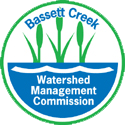News
Workshop will focus on how property managers can cut down on salt usage
Tue, Sep 10, 2019Has your doctor cautioned you (or a family member) to reduce salt intake? Sadly, despite your best efforts to scrutinize food labels, you may not to avoid some of the salt in your diet unless community-wide efforts are taken to reduce winter over-salting. Surprisingly, some of your salt intake may be coming from your water, not just your food. Thirty percent of metro area monitoring wells have levels of salt (aka chloride) that exceed water quality standards. These chlorides reach our water supplies through storm water runoff. As snow and ice melt off hard surfaces, salty water runs into storm drains that flow into lakes, streams, wetlands, and seeps into groundwater. Once the salt is dissolved in water, there is no practical way to get the salt out of the water. That means, the best remedy for keeping our drinking water clean is prevention.
Bassett Creek Watershed Management Commission is working hard on educating the public, businesses and winter maintenance professionals on “smart salting” techniques by teaming up with partners to host workshops.
A free workshop will be 9 a.m. to 1 p.m. Tuesday, Sept. 24, at the Crystal Community Center and will be geared for property owners and managers, including commercial, retail, school districts, homeowners’ associations and faith-based organizations. It will cover smart salting and other sustainable winter maintenance strategies, educating workforces, legal issues and communicating with property users. At the end of the workshop, there will be a voluntary certification test to become Smart Salting Certified by the Minnesota Pollution Control Agency for Property Managers. Funding for the workshop is provided by the Minnesota Pollution Control Agency through a grant from the U.S. EPA, Section 319 Nonpoint Source Management Fund.
Property managers are likely overseeing the over-salting with good intentions. They are attempting to avoid slips and falls and even lawsuits and do what they believe patrons are expecting of them. The pervasive “more is better” mindset is widely held by patrons and managers alike. But what’s not well understood is that more salt doesn’t mean more melting. It only means additional costs in repairing pitted sidewalks, burned out sod and vegetation, ruined carpets and rusted vehicles. There is a balance between using enough salt to provide safe passage of people and cars and using so much that infrastructure and the environment suffer.
Can you think of places you went last winter that had piles of salt in their parking lots or in front of their buildings? The watershed commission needs your help in getting the word out to property managers to attend this important training. Property managers or others who oversee winter maintenance contracts can register at bassettcreekwmo.org or call 952-270-1990 for more information.
Dawn Pape is outreach and education coordinator for the Bassett Creek Watershed Management Commission. Comments are welcome at dawn@lawnchairgardener.com. Get information at bassettcreekwmo.org.

